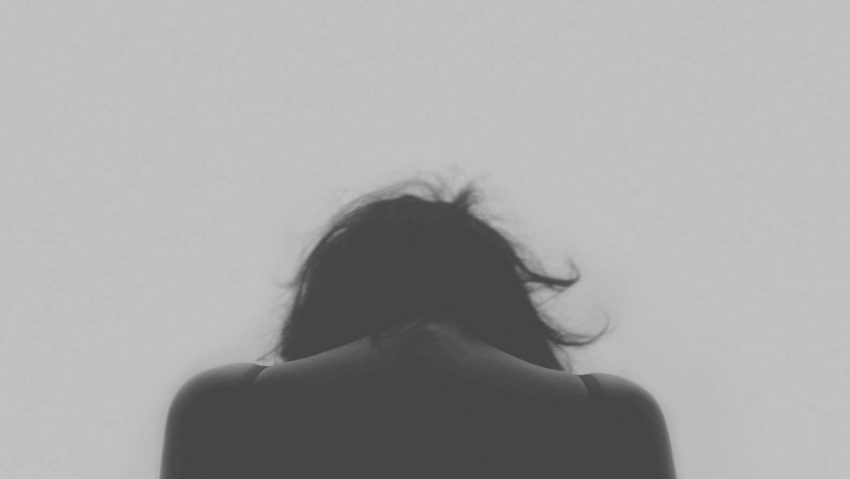

7 months it took for me to admit to myself, and to those around me, that something wasn’t right.
I hadn’t been quite ‘right’ since Max was born. I’d spend days indoors, scarcely moving from our shit hole of a bedroom, on the verge of tears until Toby came home from work and gave me some respite for an hour or two.
7 fucking months.
At nearly 8 months post partum, I feel like I’m almost out of the haze; I can see the chinks of sunshine starting to pierce the swirling grey fog of PND. I feel *almost* like myself again.
It took a bloody long time, but I’ve finally come to terms with the fact that I’ve been struggling with postnatal depression.
PND is something that we are much more aware of in 2017, yet is still a topic that has an aura of ‘taboo‘ surrounding it; a topic that makes the inexperienced balk, uncomfortable and unsure what to say in response to your frank admission that you’ve been diagnosed with and are suffering from this condition.
It’s thought that 1 in 10 new mums experience PND to some degree; 1 in 25 dads suffer too. Hardly unheard of, and likely even more common due to the stigma making people reluctant to seek help, therefore even more people could be going undiagnosed.
In all honesty, I knew from the early days of my sons life that something was amiss; I just felt too… what word am I looking for? Guilty? Ashamed? Embarassed?
Humilated.
I felt that I’d failed at a normal pregnancy (Gestational Diabetes and Preeclampsia, constant hospital admissions), then I’d failed at a natural delivery with a failure to progress during my induction for the aforementioned conditions. I’d failed at breastfeeding with my awful supply coupled with my sons Lactose Intolerance (as I always say, as lots of folk aren’t aware and give me shit for it, lactose naturally occurs in all mammalian milk, a dairy free diet does jackshit, LI isn’t the same as CMPA, which Max also has).
I felt humiliated that I’d failed, in my eyes, at the 3 most fundamental stages of becoming a mummy; pregnancy, birth, and breastfeeding.
I’d romanticised the entire shebang so much that when things fell out of my control, I felt nothing but abject misery and self-loathing so intense that how could I have not developed PND?
And that is the crux of the issue in many cases of PND.
The romanticism of childbirth, the rabid obsession with ‘achieving’ a perfect birth…
And then the heartbreak for the women like me for whom it all goes tits up and out of the window.
The frustration that the birth plan and the daydreaming about the perfect waterbirth with peaceful whale noises playing whilst the doula wipes your sweaty brow was a COMPLETE pissing waste of time.
The agony when your boobs don’t do what nature intended them to do.
The sorrow when you pick up your first box of fucking Aptamil after 9 months of swearing blind that you were going to booby feed, investing a fortune in pumps and all the other associated paraphernalia, reading the La Leche guides, speaking to Lactation Consultants…
The stress when your screaming, unhappy baby is still poorly, and when you begin to suspect that Lactose Intolerance and/or Cows Milk Protein allergy to be the culprit, you get reduced to tears by ignorant arsehole GPs.
The sleepless nights mulling over what happened and the ‘what ifs‘ of your pregnancy and birth experience.
And I mean, come on, what on earth did I have to feel depressed about?! Healthy baby, nice house, more money than the poor folk in third world countries. I felt ridiculous and ashamed of myself for feeling this way.
Stubborn and pig-headed by nature, I brushed it all off as ‘normal’.
I have my friends and fiance to thank for giving me their perspective of how I was coping; seeing myself through their eyes gave me the incentive to seek help from my GP.
My symptoms:
- Some days being too anxious to leave the house, sometimes even my bedroom.
- Irrational frustration.
- Extreme emotions.
- Extreme mood swings.
- Intense guilt at how I was feeling.
- Feeling worthless as a mother and partner.
- Not wanting to engage with or play with my baby.
- Crying at everything.
*
I now know that it’s not my fault.
It’s not your fault either.
There are many factors and triggers for PND, and none of them are your fault.
Once I admitted to myself that I was struggling, and sought help (reluctantly), I honestly felt, as cliche as it sounds, like a weight had been lifted off my shoulders. I wasn’t being daft, paranoid, or overly-anxious as I’d previously allayed my concerns. I was taken seriously. It felt like a positive step, and from here, the only way is up!
Over the past 2 months, even before diagnosis, my symptoms have improved significantly, and accepting help now has been the catalyst that I needed to fully recover.
I’m full of regrets though… I wish I’d spoken to someone sooner. I wish that a support plan had been put in place sooner, because that may have helped soothe the rage that I was feeling towards myself, and helped me bond with my son far sooner. I can’t believe that I suffered for so long without being honest about how I was feeling.
Rage. The rage was the scariest part and I am so glad that this aspect has vanished. I would seethe at myself for struggling to bond with Max; I knew the way I was feeling wasn’t how a new mummy should feel, and I hated myself for not being able to coax out my inner sweet, nurturing mama. I felt like I was floundering every time Max cried; he’d been fed, he’d been changed, he’d had his medicine… irrationally, I felt that he was crying because he hated me.
I now understand that he was crying because he needed me, he needed me to cuddle him, which I did but only out of guilt for my irrational frustration rather than out of innate maternal instinct, which I feel was dampened by the black cloud over my head.
I was projecting my own self-loathing onto my gorgeous little boy, with his captivating (and cheeky) personality, who loves me more than I could ever imagine.
It’s taken time, but I feel that I’m now on the right path. I’m no longer floundering, but starting to flourish and with the correct support, I’ll be flying.
I now enjoy my son with every iota of my being. I now crave his sweet cuddles. I now seek out his slobbery kisses. I now want to spend hours playing with my tiny person, who loves me unconditionally.
To Max, I am NOT a failure, and that’s all that matters to me now.
I finally feel like I’m becoming the mummy and woman that I was born to be.
What I must strongly emphasise is the urgency to seek help if you’re struggling with your mental health, be it whilst pregnant, post partum, or at any point in your life.
It sounds obvious, right? Not so simple. Too many people, myself included, feel ashamed and embarrassed, and blame themselves for their suffering.
Book in to see your GP. Seek a second opinion if you feel brushed off.
There are some excellent charities and organisations you can access for resources and support too – don’t be afraid to utilise them, as they’re there to help.
*
Motherhood should be enjoyable. Rough, tumultuous, but precious. Moments that you’ll never get back shouldn’t be clouded by sadness, time spent with your baby shouldn’t be tarnished by irrational frustration.
Baby blues are very common immediately after childbirth, but developing feelings of anxiety, guilt, irrational frustration, helplessness, and a whole other plethora of symptoms described in the resources above, is notnormal.
If you’re feeling this way, I implore you, don’t normalise it – seek help and seek the parenting experience that you deserve!
The fog may seem thick, and impenetrable, but I promise that the sunshine will burn through in the end.
❤
Taken from my blog www.madnesstothemax.wordpress.com


.png)







